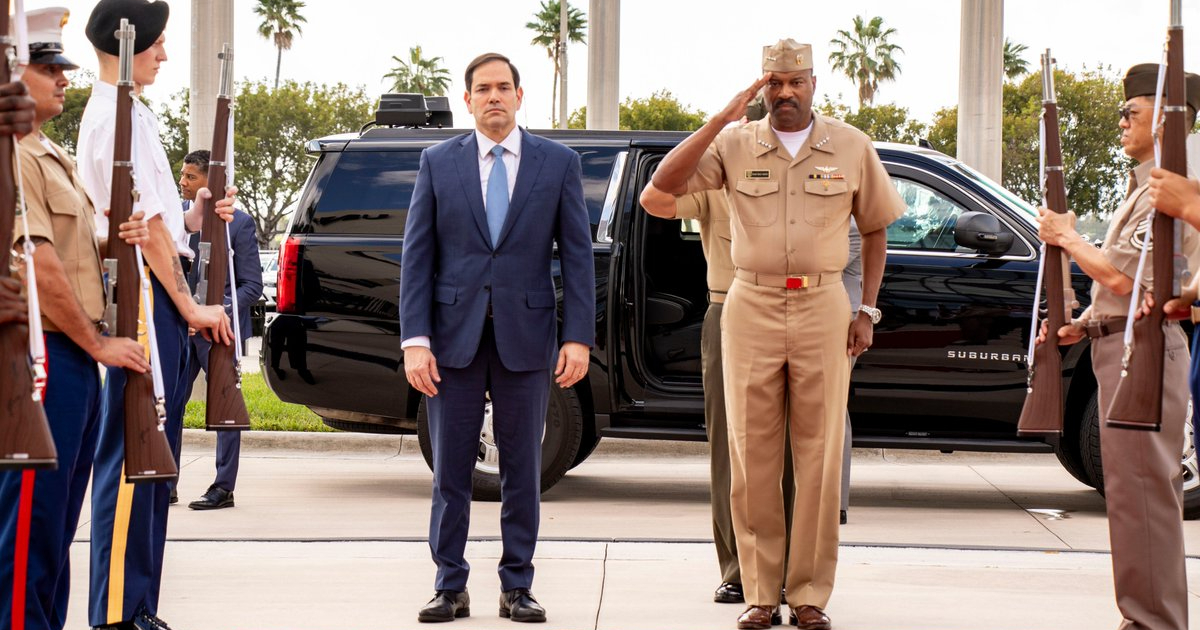On Friday, U.S. Secretary of State Marco Rubio paid a visit to the Southern Command headquarters in Florida. During this visit, he met with Admiral Alvin Holsey and other command leaders to discuss Washington's priorities in Latin America and the Caribbean, alongside the regional security challenges. The meeting focused on strategies to enhance defense cooperation and regional stability amid growing concerns over irregular migration and the influence of foreign actors within the hemisphere.
Rubio was joined by representatives from the Department of State and other government agencies, highlighting the emphasis the U.S. administration places on these issues. "The 'America First' policy means we must focus on our own region. Our combined efforts in focused diplomacy and military excellence make the United States safer and stronger," Rubio stated following the meeting. This visit is part of the Secretary of State's tour across Latin America, aiming to coordinate efforts with allied governments to tackle common security and development challenges.
The Southern Command, based in Doral, Florida, is responsible for U.S. military cooperation in the Western Hemisphere. It plays a crucial role in executing defense strategies and assisting allied nations in combating organized crime and other transnational threats. The recent meeting between Rubio and Admiral Holsey reflects Washington's increasing attention to security and stability in Latin America and the Caribbean.
In January 2025, Mike Hammer, head of the U.S. Embassy in Havana, convened with SOUTHCOM leaders in Miami to discuss matters concerning Cuba, national security, and human rights in the Western Hemisphere. Moreover, in June 2024, the fast-attack submarine USS Helena made a port call at Guantanamo Bay as part of a SOUTHCOM mission focusing on global maritime security and national defense. Although the Cuban regime was informed in advance, it expressed discontent over the presence of such a vessel in its territory, citing the military base's occupation as "illegal and unacceptable."
U.S. Concerns Over External Influences in Latin America
These activities occur against the backdrop of the Southern Command highlighting the influence of external actors in the region. In March 2022, General Laura Richardson, then chief of SOUTHCOM, stated that Cuba exerts a "corrosive influence" in Latin America by providing political, military, and intelligence support to regimes like Venezuela. In August 2021, Admiral Craig Faller, former head of the U.S. Southern Command, expressed regret over the silencing of the 11J protests in Cuba. "I feel for the Cuban people, they deserve a better government and their freedoms; they tried to exercise those freedoms and were clearly silenced," Faller remarked.
These statements underscore U.S. concerns about human rights in Cuba and the influence of external actors in the region. The recent meeting between Marco Rubio and Admiral Alvin Holsey highlights the ongoing focus on these issues in U.S. security and foreign policy towards Latin America and the Caribbean.
Key Questions on U.S. Engagement in Latin America
What are the main security concerns for the U.S. in Latin America?
The primary security concerns include irregular migration, the influence of foreign actors, organized crime, and human rights issues.
How does the U.S. plan to address these concerns?
The U.S. plans to strengthen defense cooperation and regional stability through diplomacy and military collaboration with allied governments.
What role does the Southern Command play in this strategy?
The Southern Command is pivotal in executing defense strategies and assisting allies in combating transnational threats in the Western Hemisphere.
